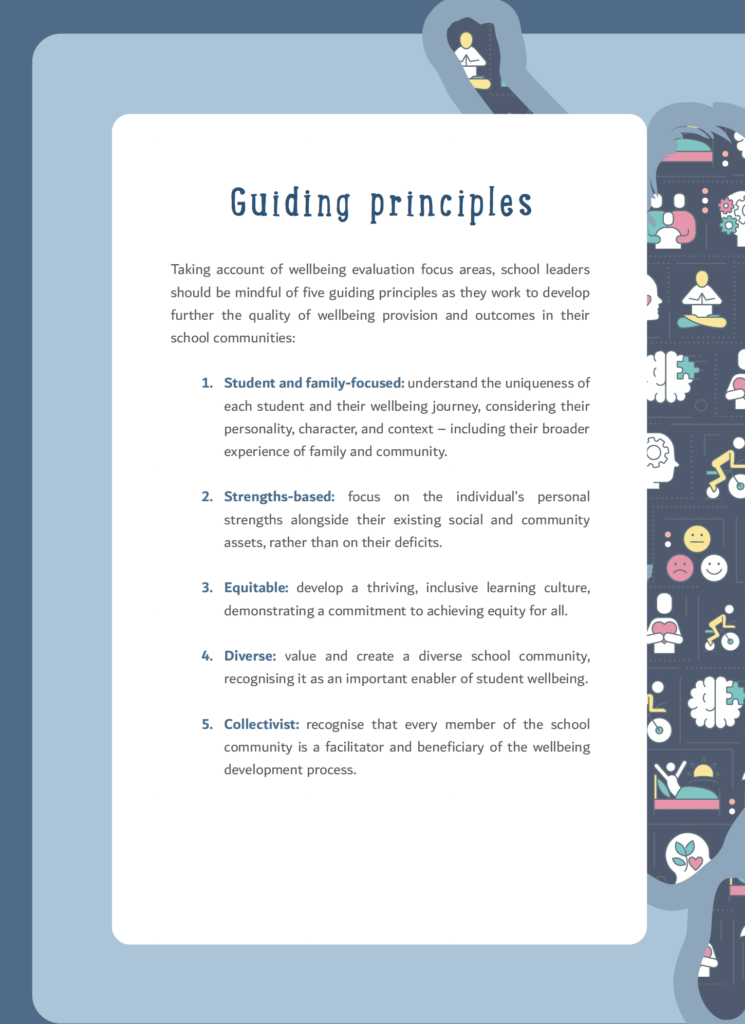Dubai’s plan for wellbeing at school
Children’s mental health and wellbeing in Dubai’s schools has been put centre stage in a new framework document launched by the emirate’s education regulator – the Knowledge and Human Development Authority (KHDA).
‘Wellbeing Matters: A guiding framework for the monitoring and improvement in Dubai Private Schools’ has been launched, giving guidance both for student’s health and also prioritising that of teachers.
In the report, the KHDA says: “Given that children and young people spend a sizable part of their daily lives in educational settings, schools are increasingly expected and tasked to fulfill two crucial and interwoven mandates.
“These are to nurture in students those capabilities that equip them with the appropriate knowledge, understanding and skills for them to thrive in adult life, whilst enabling them to enjoy themselves and foster personal wellbeing throughout their education experience. Persuasive international evidence highlights the interdependent relationships between health, wellbeing, and academic achievement.
“This emphasises the importance of a whole-school approach to wellbeing advancement.”
The framework highlights examples of improved educational outcomes associated with enhanced wellbeing and health including:
- improved levels of school engagement;
- more positive experiences through different education phases;
- decreased likelihood of students dropping out of education;
- improved mental health, higher levels of self-esteem and self-efficacy;
- and increased motivation and self-regulation.
Turning its focus to teachers and staff members at school, the KHDA said: “The role of teachers and other staff members, with whom students spend much of their time, is essential to the work of school-based wellbeing advancement.
“With aspects such as teacher turnover and teacher confidence identified as barriers to this process, securing healthy, supportive, and empowering working conditions is a crucial enabler, which is a matter of importance for school governance and leadership.
“In short, teacher wellbeing, and that of other staff members must be a core, strategic focus for school leaders in the quest for greater levels of student wellbeing. They must have an effective recruitment and retention policy, foster manageable workloads and implement positive and meaningful professional appraisal systems.”
The framework outlines five guiding principles which should shape wellbeing in Dubai’s private school, including being Student and family-focused, Strengths-based, Equitable, Diverse and Collectivist.

Schools will be evaluated on their progress with levels of wellbeing provision ranked from ‘low’ to ‘very high’.
A school deemed to be very high is defined as:
“Provision to promote student wellbeing is exceptional. The wellbeing vision and direction are extremely clear and are realised in the daily work of the school. The school continues to extend its wellbeing-focused environment, refining it in insightful ways over time. The school’s wellbeing communication and approach strongly engage students, staff and parents. Students’ highly positive attitudes and attributes, seen through their engagement and motivation, are embedded features. Students are proactive in improving their own wellbeing and that of others.”
Now the KHDA has invited all schools and stakeholders to consult on the initial framework, to help shape wellbeing and make it central to children’s development.
“As we embark on the next phase of the wellbeing journey, we invite all stakeholders, and in particular school leaders to actively commit to wellbeing advancement, bringing every student’s wellbeing to the heart of our school communities,” said the KHDA.
To view the full framework click here.